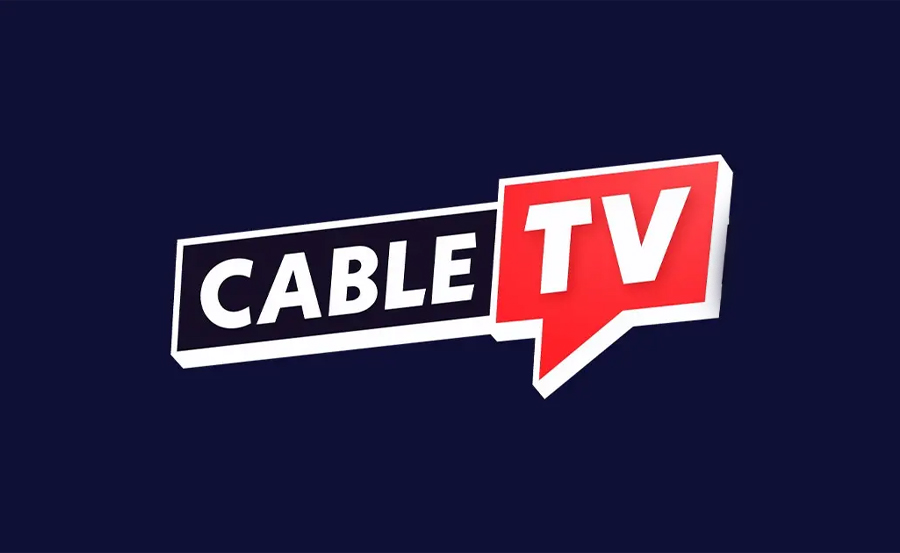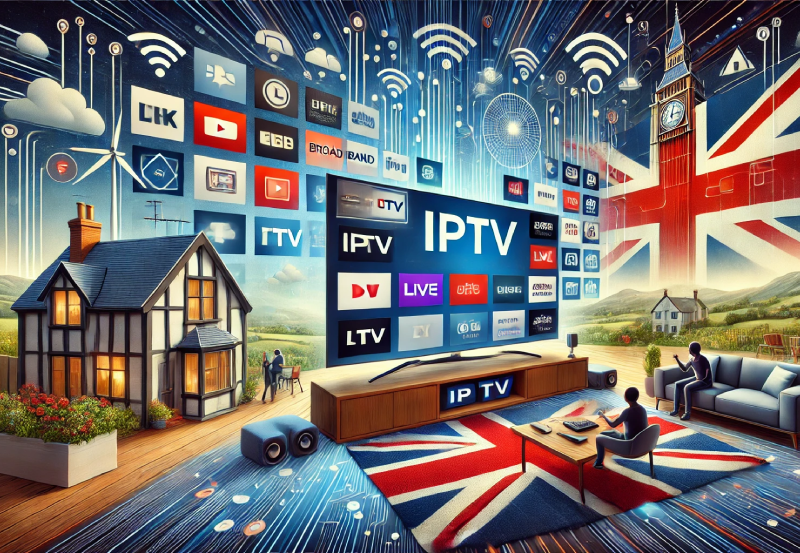When comparing IPTV and cable TV, several key differences emerge. IPTV delivers television content via the internet, while cable TV uses a physical cable network. This fundamental distinction affects accessibility, device compatibility, and content variety.
Buy 6 Months IPTV for Endless Entertainment
IPTV offers greater flexibility, allowing viewers to access content on various devices such as smartphones, tablets, and smart TVs. It typically provides a wider range of channels and on-demand options, enhancing its versatility for consumers. Cable TV, however, has established itself as a reliable television content source over many years.
It generally offers more stable signal quality and doesn’t depend on internet connectivity for service delivery. Cable providers often bundle IPTV services with internet and phone packages, which can be convenient for customers seeking a single-provider solution. The choice between IPTV and cable TV depends on individual preferences, considering factors such as desired flexibility, content variety, signal reliability, and bundled service options.
Each technology has its strengths and limitations, catering to different viewer needs and priorities.
Key Takeaways
- IPTV offers more flexibility and customization compared to traditional cable TV
- Streaming services provide a wide range of content including movies, TV shows, and original programming
- Faster internet speeds result in better quality and uninterrupted viewing experience
- Understanding data caps is important to avoid additional charges and limitations on streaming
- Both IPTV and cable TV have legal and illegal options, so it’s important to choose a reputable provider
Unparalleled Content Variety
One of the main advantages of streaming services is the sheer variety of content available. From original series and movies to classic films and documentaries, there’s something for everyone. Many streaming services also offer personalized recommendations based on your viewing history, making it easier to discover new content that you’ll love.
Convenience and Accessibility
Another significant benefit of streaming services is the ability to watch content on multiple devices, including smartphones, tablets, and smart TVs. This means you can enjoy your favorite shows and movies anywhere, anytime, as long as you have a stable internet connection.
Considerations and Drawbacks
While streaming services offer numerous benefits, there are also some drawbacks to consider. One of the main concerns is the cost of subscribing to multiple services to access all the content you want. Additionally, streaming services require a stable internet connection to provide a smooth viewing experience, which can be a challenge for those with slower internet speeds or limited data caps.
Internet Speed: How it Affects Your Viewing Experience
Internet speed plays a crucial role in determining the quality of your viewing experience, especially when it comes to streaming content. The speed of your internet connection can affect how quickly content loads, the resolution at which it is displayed, and whether or not you experience buffering or lag while watching. For those using IPTV or streaming services, having a fast and reliable internet connection is essential for enjoying high-quality content without interruptions.
A fast internet connection is particularly important for streaming high-definition content. In order to stream HD video without buffering or lag, you’ll need a connection speed of at least 5 Mbps. For those who want to stream 4K content, even faster speeds are required – typically around 25 Mbps or higher.
Slower internet speeds can result in lower resolution video and longer loading times, which can detract from the overall viewing experience. In addition to speed, the stability of your internet connection is also important for uninterrupted viewing. A stable connection helps prevent buffering and lag while watching content, ensuring a smooth and enjoyable experience.
Factors such as network congestion and the quality of your home network setup can also impact the stability of your internet connection. Ultimately, having a fast and stable internet connection is essential for those who want to enjoy high-quality streaming content without interruptions.
If you want buy IPTV
Data Cap: Understanding the Limitations
Many internet service providers impose data caps on their customers, limiting the amount of data that can be used each month. For those who use IPTV or streaming services to watch television content, data caps can be a significant concern. Streaming high-definition video consumes a large amount of data, and exceeding your data cap can result in additional fees or reduced internet speeds.
Understanding the limitations of your data cap is important for managing your internet usage and avoiding unexpected charges. Data caps vary widely among internet service providers, with some offering unlimited data plans and others imposing strict limits on monthly usage. It’s important to check with your provider to determine what your data cap is and how it may impact your ability to stream content.
Additionally, keep in mind that other activities such as online gaming, video calls, and downloading large files can also contribute to your monthly data usage. For those who regularly stream high-definition video or use IPTV services, it’s important to monitor your data usage to avoid exceeding your cap. This may involve adjusting your streaming settings to lower resolutions or limiting the amount of time spent watching content each month.
Some providers also offer tools to help customers track their data usage and manage their internet consumption. Ultimately, understanding the limitations of your data cap is essential for avoiding additional fees and ensuring that you can continue to enjoy streaming content without interruption.
Is It Legal: The Legality of IPTV and Cable TV
The legality of IPTV and cable TV is a complex issue that varies depending on the specific service being used. In general, cable IPTV services are provided by licensed providers who have agreements with television networks and content creators to distribute their programming. This means that cable TV is typically considered legal as long as you are using a legitimate service from a licensed provider.
IPTV, on the other hand, operates in a more gray area when it comes to legality. While there are legitimate IPTV services that have agreements with content creators to distribute their programming over the internet, there are also many illegal IPTV services that offer pirated content without proper authorization. Using an illegal IPTV service can expose users to legal risks such as copyright infringement and piracy charges.
It’s important for consumers to do their due diligence when choosing an IPTV service to ensure that they are using a legitimate provider. Look for services that have agreements with television networks and content creators, and avoid using services that offer suspiciously low prices or access to premium content without proper authorization. Ultimately, while cable TV is generally considered legal when using licensed providers, the legality of IPTV depends on the specific service being used.
Cost Comparison: Which Option is More Affordable
Bundled Services and Internet Requirements
Cable TV providers often offer bundled packages that include internet and phone services, which can result in additional savings for those who want all of their services from one provider. In contrast, IPTV services typically require a separate internet subscription to access television content over the internet.
Monthly Subscription Fees
In terms of monthly subscription fees alone, IPTV services often offer more competitive pricing compared to traditional cable TV providers. Many IPTV services offer packages with a wide range of channels at lower prices than cable TV subscriptions. Additionally, some IPTV services offer à la carte channel options, allowing users to customize their channel lineup and potentially save money by only paying for the channels they want.
Additional Costs and Promotional Pricing
However, it’s important to consider additional costs such as internet subscriptions when comparing the overall affordability of IPTV and cable TV. While IPTV subscription fees may be lower than cable TV fees on their own, adding an internet subscription can increase the total cost of using an IPTV service. Additionally, some cable TV providers offer promotional pricing or discounts for bundling multiple services together, which can result in additional savings for consumers.
Individual Needs and Preferences
Ultimately, the cost comparison between IPTV and cable TV will depend on individual needs and preferences. Consider factors such as bundled service options, à la carte channel selections, and promotional pricing when determining which option is more affordable for your specific situation.
When it comes to user experience, both IPTV and cable TV have their own set of advantages and disadvantages. With IPTV, users can enjoy greater flexibility in terms of where and how they watch television content. IPTV allows for viewing on a variety of devices such as smartphones, tablets, and smart TVs, making it convenient for those who want to watch their favorite shows on the go or from different rooms in their home.
Additionally, many IPTV services offer on-demand content and personalized recommendations based on viewing history, providing users with greater control over their viewing experience. This level of customization can enhance the overall user experience by making it easier to discover new content that aligns with individual preferences. On the other hand, cable TV offers a more traditional viewing experience with a focus on stability and reliability.
Cable TV signals are delivered through a physical network rather than over the internet, which can result in a more consistent viewing experience without concerns about internet connectivity issues affecting signal quality. Cable TV also offers features such as DVR functionality for recording shows and movies for later viewing, as well as access to live sports events and news broadcasts without relying on internet connectivity. For those who prioritize stability and reliability in their viewing experience, cable TV may provide a better overall user experience.
Ultimately, the choice between IPTV and cable TV will depend on individual preferences for flexibility and convenience versus stability and reliability in their viewing experience. Consider factors such as device compatibility, on-demand content options, and signal reliability when determining which option provides better quality and convenience for your specific needs.
If you’re interested in learning more about how to watch IPTV, you should check out this article on how to watch IPTV. It provides helpful tips and information on how to access IPTV content and make the most of your viewing experience.





